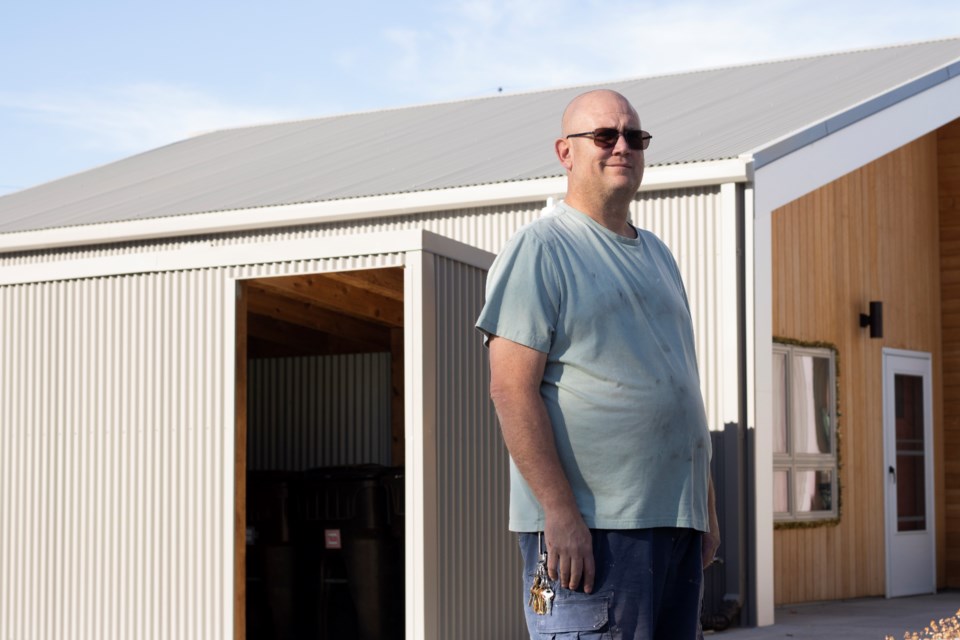Longmont’s The Inn Between provides stability to individuals and families facing homelessness in the St. Vrain Valley through affordable housing and support services.
The nonprofit has served Longmont since its establishment in 1993. It was formed under parent agency Family Extension, before gaining 501(c)(3) status in 1999.
Over the years, The Inn Between grew from one housing building to six with a total of 89 units. Both individuals and families are served and spaces vary in size with one, two and three bedroom apartments and single rooms with shared spaces.The Inn Between serves between 150 and 175 people at any given time, according to Tim Rakow, executive director of the agency.
The Inn Between was a finalist for best nonprofit for the 2021 Jubilee Awards, the annual ceremony by the Longmont Chamber recognizing local businesses and nonprofits. Rakow attributes the nomination to the Longmont community recognizing the value of services for people facing homelessmess and a joint movement.
“It's about an agency that depends on collaborative partners to work together towards something bigger and better for the residents who come to us,” Rakow said.
The cost of housing is on a sliding scale and The Inn Between determines rent by charging no more than 30% of the household’s income, Rakow said.
Permanent housing accounts for approximately 30 of The Inn Between units. Rakow said the permanent apartments are typically reserved for those who are more vulnerable to homelessness including disabled and elderly people. According to The National Low Income Coalition, 16% of Colorado’s extremely low income renter households house someone living with a disability. Elderly households account for 31%.
The remaining units are transitional housing.The program typically lasts for a 24-month period, though Rakow said The Inn Between has granted longer stays during the pandemic. He added that the purpose of transitional housing is to guide clients towards a permanent, sustainable housing situation.
“The end goal is really to find a permanent or sustainable housing situation whether it's subsidized or unsubsidized,” Rakow said. “Really, the intent and the purpose of transitional housing set up is to provide all that we can have to a pathway for people to attain greater self sufficiency in whatever way that's meaningful to them.”
Brian Mein, a maintenance assistant for The Inn Between, lived in a The Inn Between transitional unit with his family before working for the nonprofit. He entered the transitional program six years ago, staying a little over the two year period, after he was severely injured at work and lost his car and house. Mein’s family stayed with friends after his workplace injury placed him in between jobs.
Today, he is employed by the same agency that once provided him with affordable housing, and maintains the buildings for current residents. Mein said he wanted to continue bettering himself as the reason to now work for the nonprofit, adding that The Inn Between paid for some classes to advance his career.
During his residency with The Inn Between, Mein said he improved his credit score. He is planning on buying a house next year.
“We utilized the program correctly. We improved our credit score, I improved my credit score almost 100 points while there,” Mein said. “My wife improved hers around almost 300 points while we lived there. And then that just in turn just helps with moving life forward.”
In addition to the transitional housing program, The Inn Between offers another temporary living space to teenagers 16 and older. The Student Incentive Program (SIP) provides housing at no cost to teenagers who are facing homelessness and going to school in the St. Vrain Valley. The program is meant to give teens a safe space to stay while completing high school or their GED in the St. Vrain Valley.
Housing is just one tool that The Inn Between uses to aid its clients. Rakow said The Inn Between added support services to fill gaps in the needs of their residents.
“The Inn Between exists to provide affordable housing and promote stability for people who are experiencing homelessness,” Rakow said. “Aside from affordable housing the other structure that's important to what we do and our mission is providing staffing to integrate community resources, advocacy, navigate life skills training that we do on-site education center support for kiddos along with a whole list of other kinds of things within our toolbox as far as scholarship opportunities, opportunities to save towards the future.”
He added that one-way residents of the transitional housing struggle when exiting The Inn Between program is having enough to cover new lease costs including security deposits and if they are asked for first or last month’s rent. One support service guides residents in saving money for a permanent living set up. The Inn Between then doubles the amount of the funds the client set aside.
The Inn Between also grants scholarships for residents wanting to further their education or seek training. Scholarship awards of $500 or less can go toward tuition, CEU credits, certifications and other classes.
About six months into the pandemic, The Inn Between surveyed its residents and found that 76% of households experienced some type of financial setback, Rakow said. He added that the organization could offer longer stays to those in transitional housing and received donor support.
Rakow stated The Inn Between was able to add to its capacity last year with a 10-unit apartment building for transitional housing. It's the most recent addition to The Inn Between housing buildings following The Micah Homes, a six-unit permanent housing building built on land donated from the United Church of Christ and completed in 2019. Rakow hopes to continue working with community partners to add more housing.
“Recognizing the lack of inventory and the fact that there is a real challenge to more now than ever,” Rakow said. “To create a way for people to seek self sufficiency and resiliency is in adding more capacity ourselves.”



